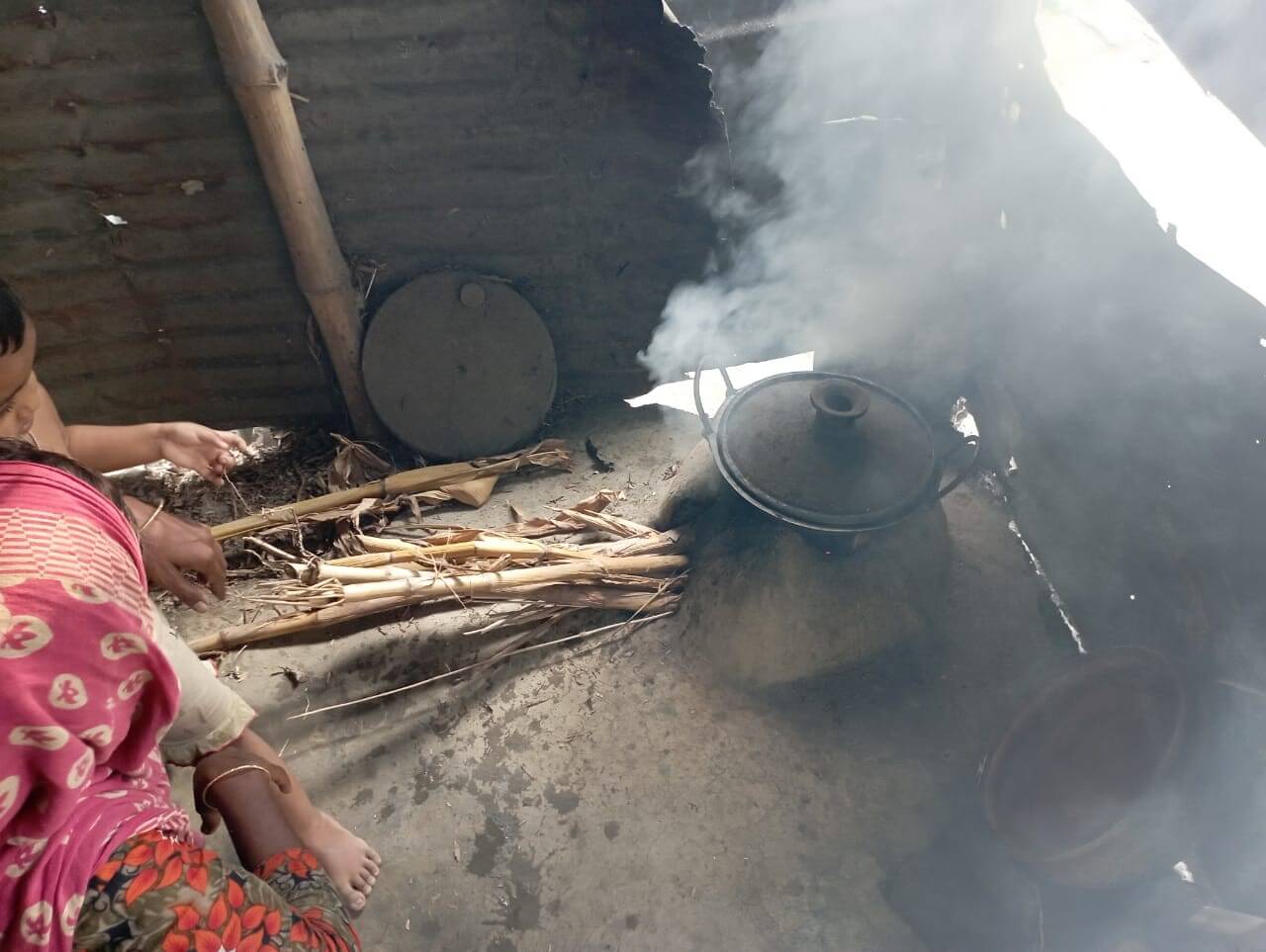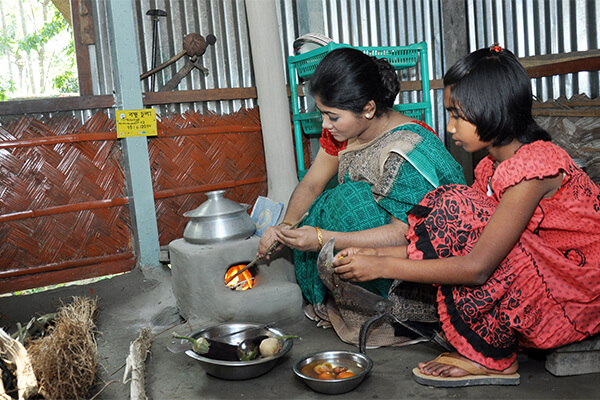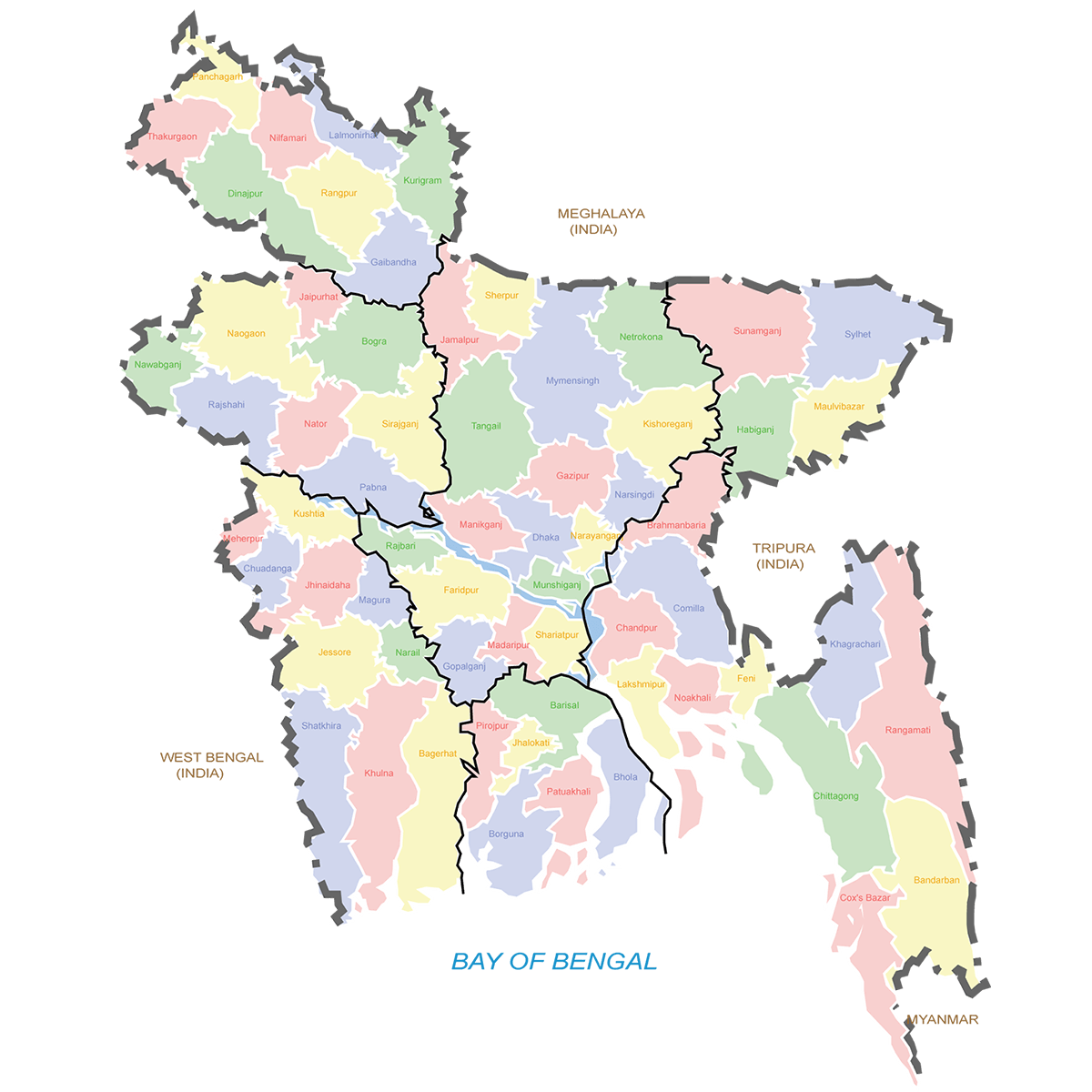Background
There are about 30 million households in Bangladesh that use traditional stoves for cooking – in rural and urban areas. The fuel used for cooking is biomass, for instance– cow dung, agricultural waste, wood, etc. The traditional stoves are fuel-inefficient, consume large quantities of biomass, and thus cause tree felling. The biomass consumption for cooking amounts to more than 60 million tons a year. This high amount of biomass consumption has crossed the limit of sustainability; the diminishing of forests results from this. Moreover, traditional stoves are a major contributor to indoor and outdoor air pollution resulting in almost 50,000 deaths of young children and women per year and serious health problems for millions of women. With population growth, urbanization, and development, the consumption of wooden biomass for cooking is expected to increase, which will make the situation worse.
To avert the situation, scientists have been urging for universal adoption of fuel-efficient and environment-friendly cookstoves. The Bangladesh Council for Scientific and Industrial Research (BCSIR) has developed different models of improved cook stoves (ICS) suitable and acceptable for use in the households of Bangladesh. German Development Cooperation, GIZ Bangladesh adopted this ICS, branded it as “Bondhu Chula” and undertook initiatives to promote this all over Bangladesh. In recent years, several organizations, namely the World Bank, USAID, and Global Alliance for Clean Cook Stoves have come forward to promote ICS in Bangladesh.
GIZ has been promoting ICS in Bangladesh since 2006. Department of Environment (DoE) under the Ministry of Environment of Forests has been working with GIZ in the dissemination of ICS. Till March 2024, 5.0 million ICS have been installed.
Goal
The Bondhu Chula project aims to initiate a radical change in the cookstoves sector of Bangladesh and create a sustainable market for improved cookstoves. To transform cooking in Bangladesh by replacing traditional stoves with Bondhu Chula. This initiative focuses on reducing smoke emissions and improving air quality, leading to healthier and more sustainable cooking environments. The goal is for every household to adopt Bondhu Chula, promoting a cleaner and more eco-friendly future for the country.
Objectives
The objectives of the project are:
(1) Creating entrepreneurs for environment-friendly cookstoves who will produce and sell improved stoves and provide after-sales services,
(2) Raising awareness,
(3) Making demand and supply chain,
(4) Replacing traditional cookstoves with environment-friendly cookstoves,
(5) Accelerating the use of environment-friendly cook stoves.
What is Bondhu Chula?
Bondhu Chula is a stove designed for fuel efficiency, health benefits, and environmental friendliness. It plays an instrumental role in safeguarding the environment at the family, national, and global levels. The Bangladesh Bondhu Foundation (BONDHU) is a front-runner in promoting Bondhu Chula initiatives across the country, aligning with the development programs of the Government of Bangladesh and contributing to the achievement of Sustainable Development Goals (SDGs). Local governments, particularly union parishads, play a pivotal role in implementing these initiatives. Local entrepreneurs are responsible for manufacturing and selling the stoves, while Bondhu Chula doctors handle installation and after-sales services. BONDHU ensures that each family receives one Bondhu Chula at a subsidized price. With proper maintenance, these stoves can be used for a minimum of five years.
Components
The Bondhu Chula has six components: stove, chamber, chimney, dice, grate, and cap. It is designed for both family and commercial use. Customers can purchase either fixed one, two, or three-pot/paired-pot stoves.
Fuel: Fuelwood, cow-dung sticks, twigs, jute sticks, and other agricultural residues.
Maintenance: For optimal performance, it is essential to regularly use and maintain the Bondhu Chula filter. For purchasing or servicing Bondhu Chula products, contact Bondhu Chula's sales and service center.
Estimated lifespan: Minimum 5 years



Bondhu Foundation (BONDHU) is
spearheading Bondhu Chula projects across Bangladesh. These initiatives are
being implemented in nearly every district, reflecting BONDHU's commitment to
bringing efficient and eco-friendly cooking solutions to communities throughout
the country.
Reach out us if you are committed to working for climate action and intend to bring a positive change in the environment of Bangladesh through mitigation and adaptation to climate change and want to fight environmental degradation together.